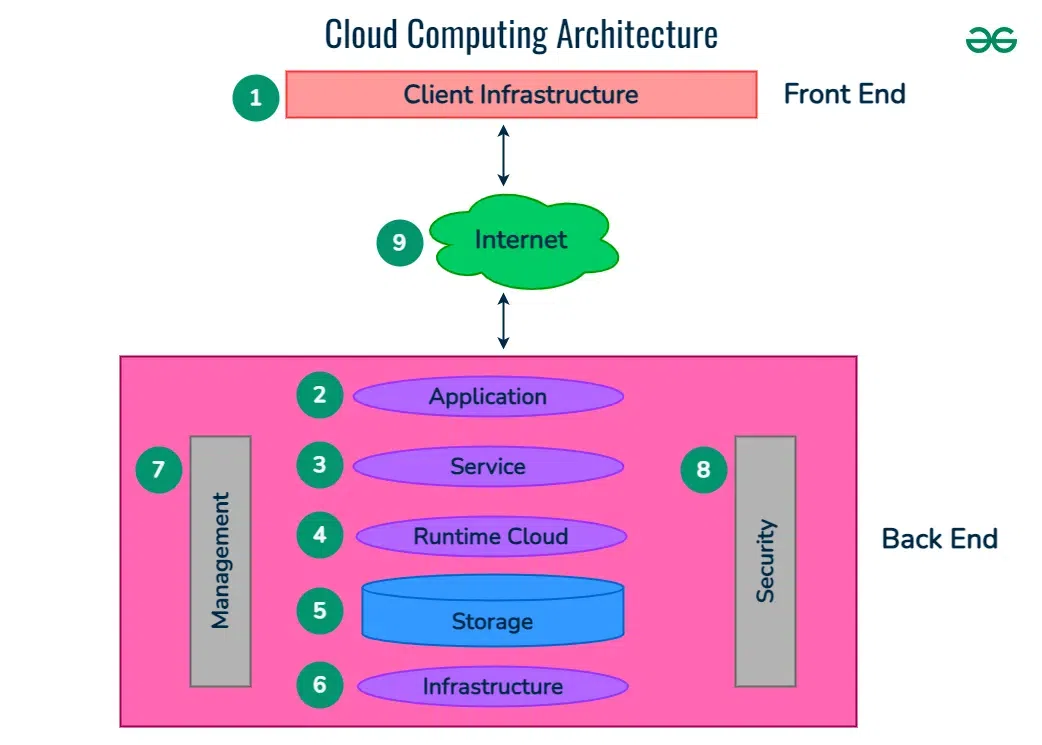LinkDaddy Cloud Services Decoded: Expert Insights into Universal Cloud Service Advancements
LinkDaddy Cloud Services Decoded: Expert Insights into Universal Cloud Service Advancements
Blog Article
Simplify Your Infrastructure With Cloud Provider
As businesses navigate the ever-evolving landscape of technology and data management, the role of cloud solutions in simplifying framework has actually become increasingly popular. Just how can companies efficiently navigate this change and really open the possibility of cloud solutions for simplifying their framework?
Benefits of Cloud Provider
Cloud solutions supply a structured technique to handling IT facilities, supplying organizations with scalability, cost-efficiency, and flexibility. One of the key advantages of cloud solutions is the scalability they supply.
Furthermore, cloud solutions eliminate the demand for businesses to purchase costly equipment and software program. This cost-efficiency is a considerable advantage, specifically for small to medium-sized business looking to reduce ahead of time expenses. By utilizing cloud services, organizations can access top notch IT sources without the large price tag related to traditional infrastructure arrangements.
Furthermore, cloud services give companies with the flexibility to access their information and applications from anywhere with a net link. This degree of access improves partnership amongst groups, allows remote work, and boosts total productivity. The flexibility offered by cloud services empowers companies to adapt swiftly to changing market problems and consumer demands.
Expense Financial Savings and Scalability
In addition to the functional advantages highlighted earlier, the integration of cloud services right into a company's facilities brings forth considerable price savings and enhanced scalability. Cloud solutions provide a pay-as-you-go version, allowing organizations to range sources up or down based upon present needs, thus staying clear of the costs connected with preserving excess ability. This adaptability makes it possible for firms to adapt quickly to fluctuating demands without sustaining unnecessary expenses.
Additionally, cloud solutions get rid of the need for upfront investments in equipment and software, decreasing capital investment. Overhead are likewise decreased as companies no much longer require to take care of and keep physical servers, causing reduced power consumption and IT staffing prices. Furthermore, cloud services offer automated updates and maintenance, ensuring that the infrastructure stays up-to-date and safe without calling for hand-operated treatments.
Boosted Security Measures
When integrating cloud solutions into a business's infrastructure to guarantee and safeguard delicate information conformity with industry laws,Carrying out stringent protection steps is extremely important. Cloud solution providers supply boosted security attributes such as information encryption, firewall software defense, and multi-factor authentication to mitigate cybersecurity dangers. Encryption assists shield data both at remainder and en route, making sure that only authorized users can access sensitive information. Firewalls work as a barrier between internal networks and exterior risks, monitoring and controlling incoming and outbound network website traffic. Multi-factor verification includes an additional layer of security by calling for individuals to provide numerous kinds of confirmation prior to accessing the cloud solutions.
Moreover, regular protection audits and compliance analyses assist make sure and determine susceptabilities adherence to market criteria. i thought about this Business can likewise benefit from features like computerized protection updates and real-time hazard monitoring given by cloud service providers. By focusing on safety actions and staying aggressive in attending to potential dangers, organizations can confidently leverage cloud solutions while safeguarding their beneficial data from unauthorized access or breaches.
Transitioning to Cloud Facilities
To successfully integrate cloud solutions right into a firm's infrastructure, a structured method that deals with the change towards cloud-based services is important. Transitioning to cloud facilities includes cautious planning and execution to make sure a smooth movement procedure - cloud services press release.
When the assessment is total, a migration strategy should be developed. This method needs to lay out the timeline, sources, and duties for relocating each part to the cloud. It is vital to interact this strategy clearly to all stakeholders to guarantee alignment and minimize disruptions throughout the change.
Throughout the movement testing, process and monitoring are crucial to her latest blog determine and attend to any type of problems without delay. Regular checkpoints ought to be established to track progress and make necessary adjustments. In addition, training for staff members on making use of cloud solutions must be supplied to make sure an effective change and optimize the advantages of the new facilities.
Finest Practices for Cloud Adoption
Effective fostering of cloud services rests on the tactical positioning of organization objectives with technical capabilities and business preparedness. To make sure a smooth change to the cloud, organizations should begin by conducting a detailed assessment of their present infrastructure and determining which workloads are best fit for cloud migration. It is critical to entail key stakeholders from various divisions in the decision-making process to gain buy-in and resolve any type of problems early.
Another finest technique for cloud adoption is to prioritize safety and security and compliance. Organizations needs to carefully review the safety and security steps supplied by cloud provider and make certain that their data is protected according to sector requirements and regulative needs. Executing robust information security, accessibility controls, and normal safety audits can aid reduce risks connected with cloud fostering.

Final Thought

As companies browse the ever-evolving landscape of innovation and data monitoring, the role of cloud services in streamlining framework has come to be progressively noticeable - Cloud Services. Just how can companies effectively browse this shift and truly open the possibility of cloud solutions for simplifying their facilities?
Cloud solutions supply a streamlined strategy to managing IT facilities, giving businesses with scalability, adaptability, and cost-efficiency. By making use of cloud services, services can access top quality IT resources without the substantial cost tag linked with traditional facilities setups.
To make certain a smooth transition to the cloud, organizations need to start by performing a comprehensive assessment of their current framework and identifying which workloads are best fit for cloud movement.
Report this page